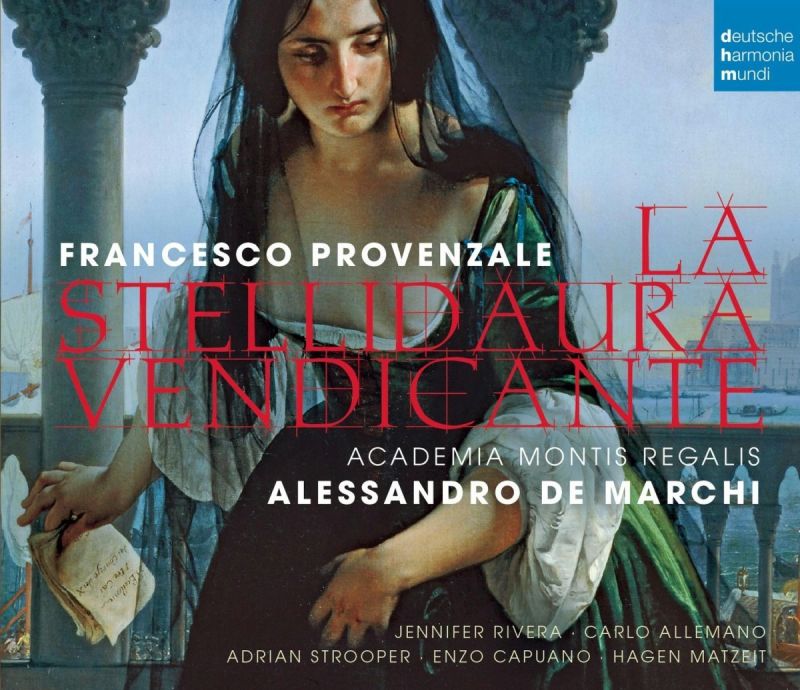PROVENZALE La Stellidaura vendicante
First taping for opera by ‘father of the Neapolitan school'
View record and artist detailsRecord and Artist Details
Composer or Director: Francesco Provenzale
Genre:
Opera
Label: Deutsche Harmonia Mundi
Magazine Review Date: 09/2013
Media Format: CD or Download
Media Runtime: 162
Mastering:
DDD
Catalogue Number: 88883 70385-2

Tracks:
| Composition | Artist Credit |
|---|---|
| La Stellidaura vendicante |
Francesco Provenzale, Composer
Academia Montis Regalis Adrian Strooper, Armidoro, Tenor Alessandro de Marchi, Conductor Carlo Allemano, Orismondo, Tenor Enzo Capuano, Giampetro, Bass Francesco Provenzale, Composer Hagen Matzeit, Armillo, Countertenor Jennifer Rivera, Stellidaura, Mezzo soprano |
Author: Lindsay-Kemp
First performed in 1674 in a lavish private production, La Stellidaura vendicante (‘The Revenge of Stellidaura’) has the distinction of having been shaped by a female impresario, the singer Giulia De Caro (‘La Ciulla’), who engaged both composer and librettist (one Andrea Perrucci), and was herself the star singer in the role of Stellidaura. The story has an Ariostoish flavour of chivalry, disguises and mistaken identities, as well as a final scene unmistakably reminiscent of Romeo and Juliet, though its characters’ self-conscious nobility is continually mocked by the presence of two contemptuous manservants, one of whom is further coloured in with a rich Calabrian dialect and some folksy music to match.
More generally, the style of the music mixes Cavallian declamatory writing and dance-songs with Scarlatti-like short ABA arias; Provenzale can certainly touch the emotions when he wants, for instance in a lovely sleep aria in Act 3 and a steady flow of introspective plaints and laments. The result is a fluid and varied treatment of the text, though with its chops and changes there is ultimately little of the compelling longer-term dramatic direction that you can find in operas of the same decade by, say, Lully.
De Marchi extracts richness, variety and intimacy from the minimally notated score with an imaginatively used orchestra of recorders, strings and plucked continuo. His cast is not one of big names, and neither is it universally strong; I struggled to enjoy Adrian Strooper’s amorous good guy Armidoro, especially in Act 1, while countertenor Hagen Matzeit as his servant is more in the dramatic category than the lyrical. Enzo Capuano as the Calabrian Giampetro is energetically comical, however, and Carlo Allemano shows a manly, baritonal tenor as the jealously raging Orismondo. The star, though, as in 1674, is in the role of Stellidaura. At the end, events render her ‘revenge’ unnecessary, but the strong and affecting singing of Jennifer Rivera has already carried the day.
Discover the world's largest classical music catalogue with Presto Music.

Gramophone Digital Club
- Digital Edition
- Digital Archive
- Reviews Database
- Full website access
From £8.75 / month
Subscribe
Gramophone Full Club
- Print Edition
- Digital Edition
- Digital Archive
- Reviews Database
- Full website access
From £11.00 / month
Subscribe
If you are a library, university or other organisation that would be interested in an institutional subscription to Gramophone please click here for further information.




